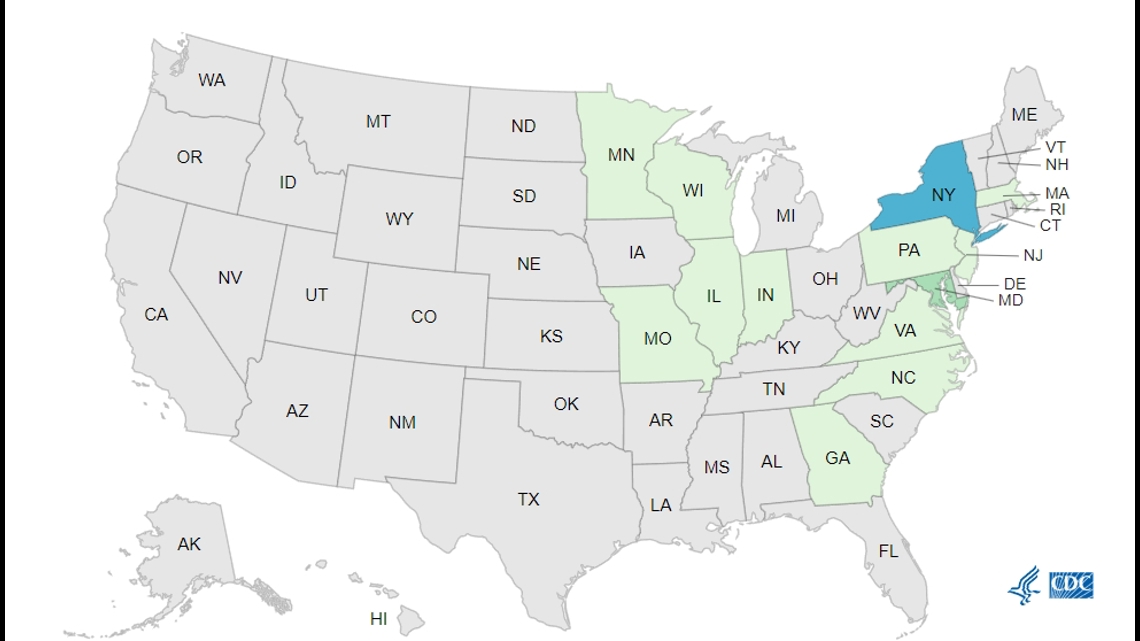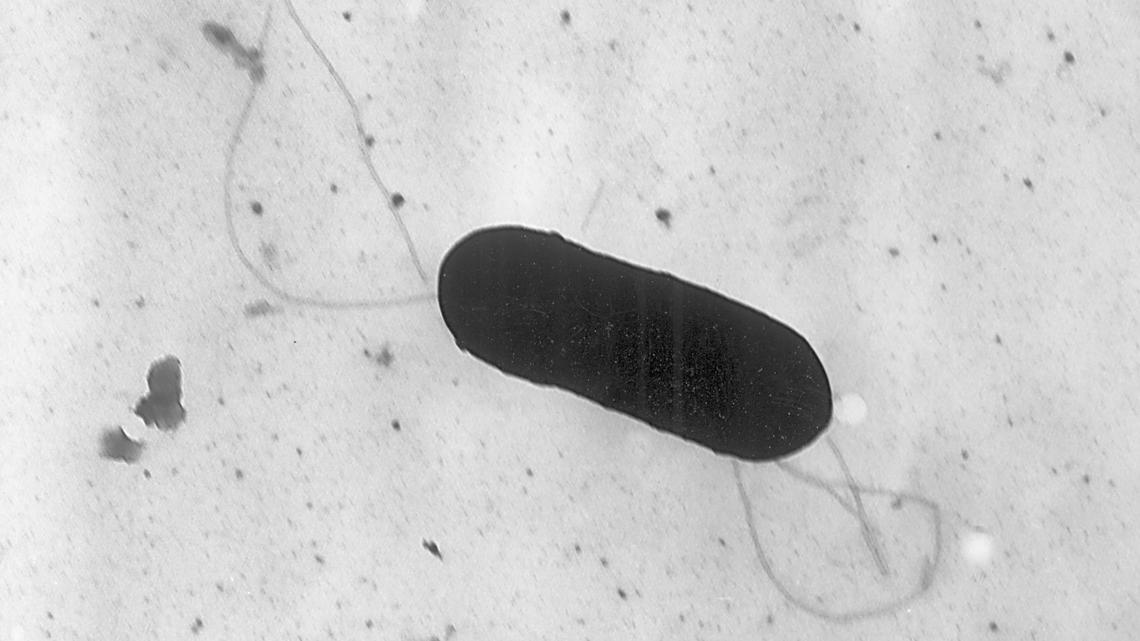JARRATT, Va. — If you have Boar's Head deli meat you may want to throw it out.
The company is recalling another 7 million pounds of meat due to a listeria outbreak that has killed two people, and sickened another three dozen. That includes at least one illness in Indiana. Almost everyone who who has gotten sick were hospitalized between late-May and mid-July.
The new recall includes 71 products made between May 10 and July 29 under the Boar’s Head and Old Country brand names. It follows an earlier recall of more than 200,000 pounds of sliced deli poultry and meat. The new items include meat intended to be sliced at delis as well as some packaged meat and poultry products sold in stores.
The problem was discovered when a liverwurst sample collected by health officials in Maryland tested positive for listeria. Further testing showed that the type of bacteria was the same strain causing illnesses in people.
They include liverwurst, ham, beef salami, bologna and other products made at the firm’s Jarratt, Virginia, plant.


“Out of an abundance of caution, we decided to immediately and voluntarily expand our recall to include all items produced at the Jarratt facility,” the company said on its website. It has also halted production of ready-to-eat foods at the plant.


The meat was distributed to stores nationwide, as well as to the Cayman Islands, the Dominican Republic, Mexico and Panama, Agriculture Department officials said.
Consumers who have the recalled products in their homes should not eat them and should discard them or return them to stores for a refund, company officials said. Health officials said refrigerators should be thoroughly cleaned and sanitized to prevent contamination of other foods.
What is Listeria?
According to the CDC, Listeriosis is a serious infection usually caused by eating food contaminated with the bacterium Listeria monocytogenes. An estimated 1,600 people get listeriosis each year, and about 260 die.
Listeria bacteria can be found in soil, water and animal feces, according to the Mayo Clinic.
People can get infected by eating the following:
- Raw vegetables that have been contaminated from the soil or from contaminated manure used as fertilizer
- Contaminated meat
- Unpasteurized milk or foods made with unpasteurized milk
- Certain processed foods — such as soft cheeses, hot dogs and deli meats that have been contaminated after processing
The CDC says Listeria is the third leading cause of death from foodborne illness in the United States.
People who are pregnant and their newborns, adults 65 or older, and people with weakened immune systems are most at risk.
Symptoms
Most Listeria infections are so mild they can go unnoticed, according to the Mayo Clinic. However, they say in some cases, a Listeria infection can lead to life-threatening complications.
According to the CDC, symptoms of invasive illness usually start within two weeks after eating food contaminated with Listeria.
Invasive means that the bacteria has spread beyond the intestines.
People who are pregnant:
- Fever
- Flu-like symptoms, such as muscle aches and fatigue
- Symptoms in pregnant people are usually mild. Some pregnant people never have symptoms.
- However, infection during pregnancy usually leads to miscarriage, stillbirth, premature delivery, or life-threatening infection of the newborn.
People who are not pregnant:
- Fever
- Flu-like symptoms, such as muscle aches and fatigue
- Headache
- Stiff neck
- Confusion
- Loss of balance
- Seizures
- Symptoms in non-pregnant people can be severe.
- Almost 1 in 6 non-pregnant people with invasive listeriosis die.
Symptoms in newborns
- Little interest in feeding
- Irritability
- Fever
- Vomiting
- Difficulty breathing
How to prevent an infection
To prevent a Listeria infection, follow the Mayo Clinic recommendations:
- Keep things clean. Wash your hands thoroughly with warm, soapy water before and after handling or preparing food. After cooking, use hot, soapy water to wash the utensils, cutting boards, and other food preparation surfaces.
- Scrub raw vegetables. Clean raw vegetables with a scrub brush or vegetable brush under plenty of running water.
- Cook your food thoroughly. Use a food thermometer to make sure your meat, poultry and egg dishes are cooked to a safe temperature.
Anyone concerned about illness should contact a healthcare provider.



